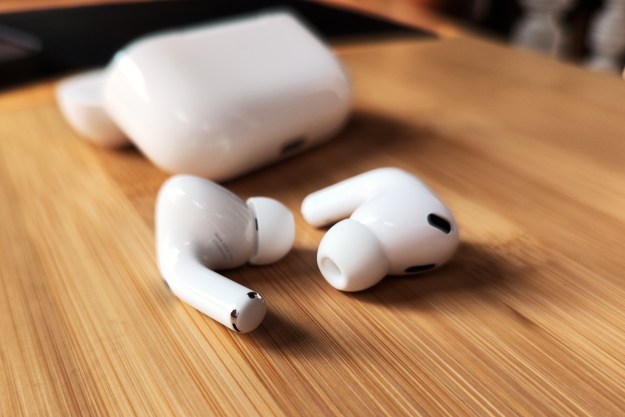
Apple is developing an “enhanced Siri,” the report claims, reportedly via its acquisition of machine learning and AI startup Turi. DigiTimes didn’t go into specifics, but says the improved voice assistant will feature “improved voice recognition,” enhanced “reliability,” and “better contextual understanding” of common requests. It will debut on an upcoming iPhone, either this year’s iPhone 8 or next year’s model.
An improved Siri platform would no doubt benefit the company’s long-rumored home speaker. The hardware voice assistant, which reportedly features a microphone and speaker array like Google’s Home and Amazon’s Echo, is expected to be able to play music, control smart-home devices compatible with Apple’s HomeKit platform, and set reminders and alarms.
Samsung, for its part, is expected to launch the Galaxy S8 in the coming months alongside an AI assistant code-named Bixby. It’s powered by technology the company acquired in its purchase of Viv, an artificial intelligence startup founded by much of the same engineering team responsible for Apple’s Siri, and it’s reportedly capable of conversational language and third-party integrations that perform tasks, dictate messages, and respond to queries on demand. According to more recent reports, Bixby’s processing chops will power image analysis and object identification.
Huawei, the world’s third-largest smartphone maker by volume, is reportedly prepping an expansion of its third- and first-party AI efforts. It recently launched the Mate 9 in the United States with Amazon’s Alexa voice assistant pre-installed.
And it took the wraps off the Honor Magic in December, an AI-powered smartphone that intelligently recommends movies, launches driving modes, shows information like an incoming Uber’s license plate number, and reveals text message notifications only when it recognizes the owner’s likeness.
LG is said to be in talks with both Google and Amazon to incorporate elements of the companies’ respective AI assistants into several of its upcoming products. It introduced Alexa-powered home appliances earlier this year, and its next flagship smartphone, the LG G6, will reportedly be the first beyond the Pixel to feature the Google Assistant.
Chinese electronics maker Xiaomi launched an AI discovery lab in November, and is said to have invested “heavily” in machine learning. “Our artificial intelligence technology will be everywhere,” co-founder and vice-president Wong Kong Kat told the South China Morning Post on Wednesday. “Even a chair can be smart enough to understand you and move to where you would be seated.”
Even startups are investing resources in AI research and development. Andy Rubin, Google’s former head of Android, is reportedly aiming to launch a smartphone in mid-2017 with unspecified machine-learning features. “In order for AI to blossom and fulfill consumer needs, it has to be about data,” he said in June.
Plans are subject to change, of course, but one thing’s for certain: Our smartphones are about to get a whole lot smarter.
Editors' Recommendations
- The OnePlus 12 has one big advantage over Samsung and Apple
- Qualcomm and Samsung are teaming up to fight Apple’s Vision Pro
- The 15 most important smartphones that changed the world forever
- 5 things the iPhone has to change in 2023 before I ditch Android
- Apple Health vs. Samsung Health? What I learned after using both


